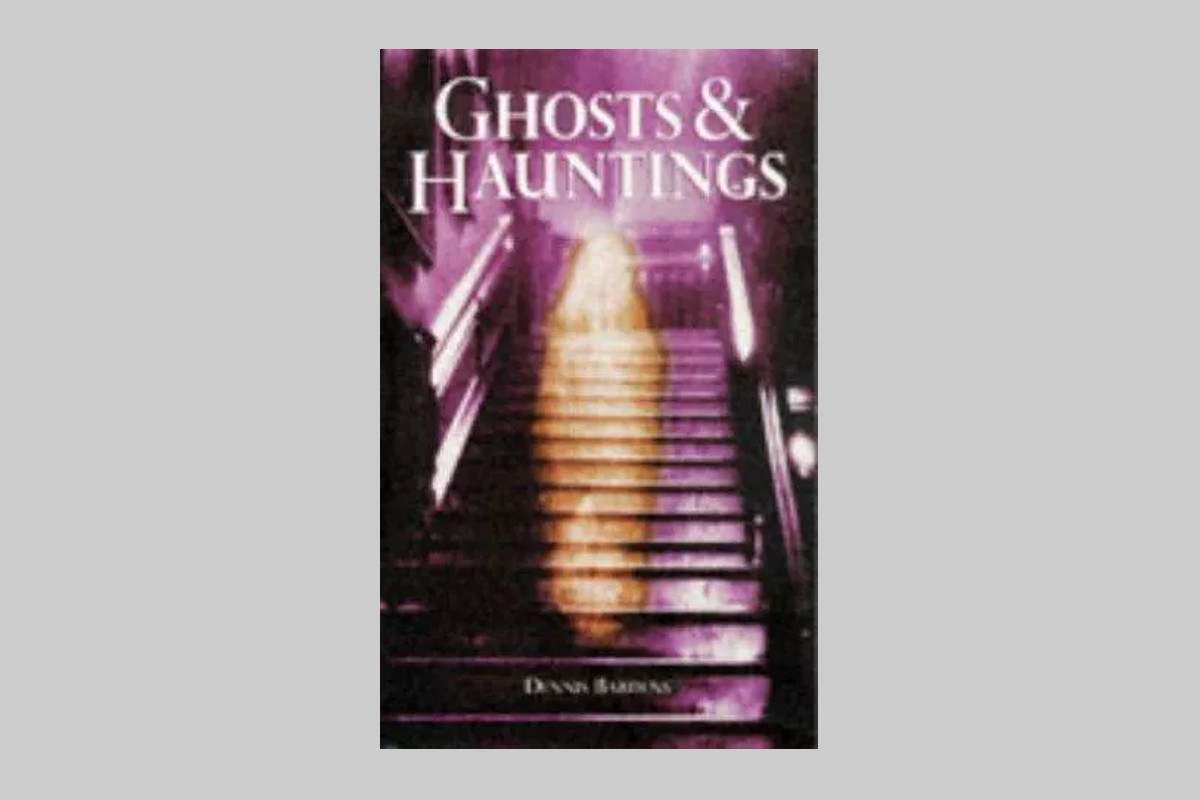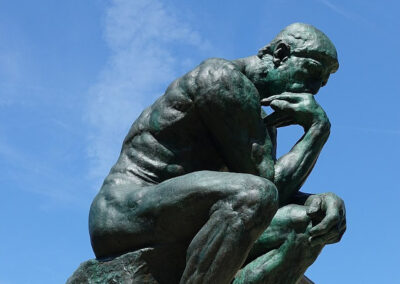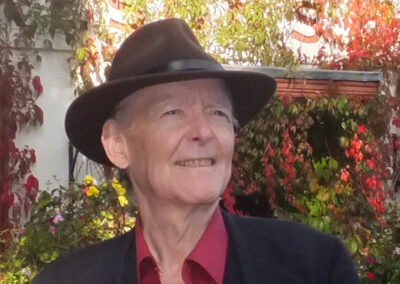Bardens employs the full battery of his forensic and inquisitorial techniques to examine countless tales of spooks that rear out of the nether world. He does so with the attention that allowed him to survive the WW2 as a ‘spook’ in a colloquial sense of that term. A slip-up at that time would have meant his being unmasked; he diced with death and was not rumbled by the Hun. He has a sure touch.
There are several common denominators in the large number of stories in Ghosts & Hauntings that give the lie to any imputation of Bardens doing other than tacking the subject with a sceptical eye. The naysayer is confounded by a weight of evidence, meticulously examined. Bardens looks with jaundiced eye at tall stories. He asks the reader to come up with a different read-out than the conclusion that there must be ‘something to it’. He chooses convincing tales out of the almost unending supply on offer, ones where there are a number of independent witnesses. He zeros in on ghastly phenomena – far more than things that merely ‘go bump in the night’ – that have been observed throughout recorded history by unknowns and knowns in a range of settings from haunted mansions to more pedestrian environs or the front lines of a war; animals as well as humans can be ghosts. His reportage of past goings-on looks at the most impeccable of sources with much erudition. The stories of hauntings that have occurred in his lifetime, he follows up visiting ‘the scene of the crime’ with detective’s nostrils akimbo; he asks for the verification of people who have no history of nervous indisposition and do not see themselves as a prey to fancy; their lifestyle invariably speaks otherwise.
Bardens offers some explanations of what he finds but what is hardly in doubt as a result of the weight of evidence is that something very strange is going on. Are the ghostly visitations that people his pages an imprint on ether or a projection of ideas, in some form? He writes: ‘Do the thoughts of the dying have any permanence? Can they register on the atmosphere or on inanimate objects and be picked up in certain conditions by living people? Or – a somewhat melancholy thought – is there a brief transition where the brain still has thoughts and can project images after death?’
Story after story is as much mind-bending as mind-boggling; many are the accounts of people keeling over in fright, sometimes fatally, after they have seen horrors. It is a grisly procession that en passant makes for a gripping read, if told in a matter-of-fact way. On occasion, there are benign presences but none human in the normal sense of the word. Perhaps we should reconsider what this is…
Dennis Bardens had a sense of humour. A note on his front door warned callers that he was ‘OUT TO LUNCH. BACK IN FIVE YEARS! PLEASE WAIT!’ Every now and again a sardonic jibe surfaces in his book: ‘Anne Boleyn, whose head … rolled beneath the axe of Henry’s busy executioner…’; he writes. It takes a Dennis to append the adjective ‘busy’. He quotes the Marquise du Deffand who, asked if she believed in ghosts, replied “No, but I’m afraid of them.” It seems a pity in one way that this book is shot through with a seriousness that his subject merits.
Bardens cites poems alluding to ghostly happenings. Another example is The Way Through the Woods in ‘Poet’s Corner’ of this website.







